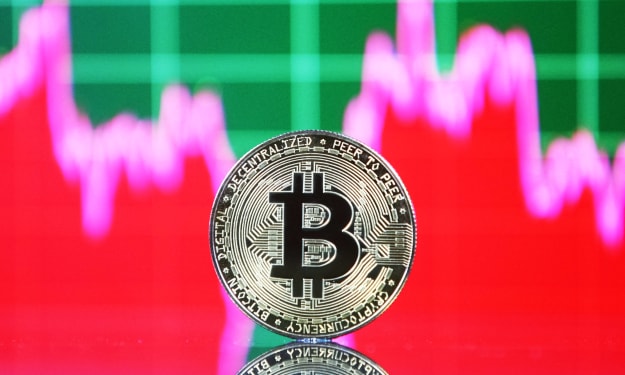14 Years of Bitcoin: How Cryptocurrency Became Part of the Global Financial System
The other day, bitcoin turned 14 years old. In October 2008, Satoshi Nakamoto published a Bitcoin White Paper, but the first block was mined on January 3, 2009. During this period, bitcoin gained global recognition and became a global currency legalized for payments in many countries of the world.

The main achievements of bitcoin were represented by the bullish trend. These include the following:
- Bitcoin capitalization is $319 billion;
- Bitcoin occupies the 27th position in the total rating of assets and enterprises (the first place is gold with $12 trillion, the second is Apple with $2 trillion). Bitcoin is ahead of companies such as Samsung, Pfizer, Coca-Cola, Bank of America, and Alibaba;
– Bitcoin has scaled without threats to decentralization. In particular, during the war for the size of the block in 2015-2017, most bitcoiners refused to increase the size of the block (the approach of traditional financial companies VISA or PayPal), the small size of the block allowed maintaining maximum decentralization and reducing the influence of miners;
- Constant growth of hashrate: both during bullish and bearish trends. Currently, the hashrate of bitcoin is 252.5 EH/s, which is about 38% more than a year ago;
- Proof-of-Work (the bitcoin consensus mechanism) has been implemented, which guarantees the work execution to confirm transactions and ensures the security of bitcoins in the most honest way.
However, in my opinion, the cryptocurrency revealed itself most during the last year, which passed in the bearish trend. Even when the exchange rate falls, more and more countries are following the path of legalization, well aware that fluctuations are the essence of the market, which does not affect the prospects of the technology itself. Brazil followed this path at the end of the last year, while Nigeria is planning to do so soon. We can see that bitcoin has already become part of the global financial system, and this process is irreversible.
Last year, the bitcoin network processed transfers worth $14.8 trillion. In 2022, there were several landmark events related to bitcoin. Let us focus on three of them:
- Bitcoin entered the Guinness Book of Records
The Guinness Book of Records added bitcoin to its new edition as the first decentralized cryptocurrency: "The concept of bitcoin was created by Satoshi Nakamoto to solve the problem of digital currency regulation without any centralized arrangement or trusted third party to monitor transactions."
- The FRS removed bitcoin from the list of main financial risks
According to a comprehensive analysis of representatives of the US Federal Reserve, the main groups of financial risks are associated with russia’s military invasion of Ukraine, consistently high inflation, restraining the FRS monetary policy, the falling demand for US investment assets, and the energy crisis.
- Mastercard announced plans to help banks introduce bitcoin payments
In 2023, the international payment system will launch a program of working with banks to simplify bitcoin transactions. Mastercard will become an intermediary between the Paxos trading platform and banks. This payment system will monitor security and compliance, while banks will retain their key functions: regulatory oversight, transaction and customer identity verification, and anti-money laundering. The new Mastercard program will be launched in the first quarter of the year within the unnamed region. If successful, the service will be scaled worldwide.
Separately, I would like to mention the success of Ukraine in using cryptocurrencies. My country continues to be at the forefront of bitcoin introduction and use.
According to Coincub’s quarterly rating, Ukraine is ranked 36th among the world’s bitcoin economies. 12.7% of citizens own bitcoin and digital assets, the country has 34 bitcoin nodes, 5 specialized exchanges and 46 bitcoin ATMs. According to a study by the blockchain company Chainalysis, Ukraine ranks third in the use of cryptocurrencies among 146 countries of the world. The depth of bitcoin integration into the Ukrainian business space is illustrated, for example, by the fact that a large Ukrainian pharmacy chain started selling medicines for bitcoins. The example once again confirms that blockchain technology remains stable and convenient to use even during such severe force majeure as martial law and power outages.
In my opinion, the main outcome of the fourteen-year history of bitcoin is the global influence on the world financial system.
Many years ago, the Internet completely changed civilization: it promoted globalization, the rapid transfer of information, thus greatly simplifying people's lives. This was a significant step towards introduction of modern technology that allowed the world to make a leap forward. I believe that Satoshi Nakamoto’s invention of bitcoin is similar in importance to the invention of the Internet. It is also a global network, yet a network of financial infrastructure, the importance and benefits of which, as in the case of the Internet, humanity will gradually discover. Bitcoin is still on its way to becoming, but blockchain technology has already changed the world. However, we can say with confidence that it is the future.
About the Creator
Serhiy Tron
Ukrainian entrepreneur, investor, Founder of White Rock Management






Comments
There are no comments for this story
Be the first to respond and start the conversation.